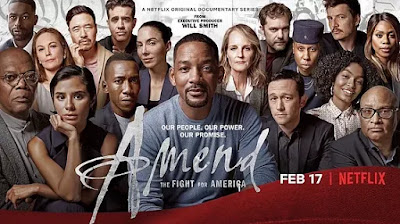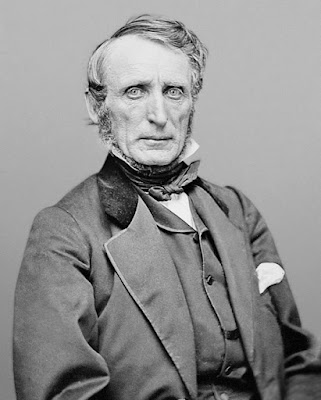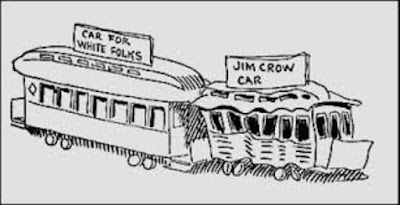Viewing JOURNEYS THROUGH FRENCH CINEMA -- the eight-hour/eight-part series that acts as a kind of follow-up to Bertrand Tavernier's wondrous documentary, My Journey Through French Cinema from 2016 -- and having that viewing interrupted by the news of M. Tavernier's death turned the experience into something else entirely. Knowing that we will have no more from this fellow who proved himself a fine filmmaker and film historian who, over his long career, managed everything from publicity to criticism to on occasion even making certain a film received distribution, I should think that cineasts worldwide are in mourning.
On the other hand, surely this is also a time of rejoicing and celebrating all that Tavernier has given us, from films such as Safe Conduct and Captain Conan to this latest and (I am guessing) last major effort that covers all the things he left out of his original, three-hour-and-21-minute-long documentary.As in the former film, the new series proves just as much a very personal trip that highlights Tavernier's own preferences and judgments. And yet, so inclusive, honest yet rigorous is this man that, even as he points out some faults in various filmmakers, he is also able to show us their special strengths, along with why certain films -- or scenes from them -- still act as important landmarks along the path.
The series -- on two discs -- is divided into eight episodes, each one just a minute or two under a full hour. Episode One covers three of Tavernier's favorite filmmakers: Jean Grémillon, Max Ophuls and Henri Decoin, and his assessment will have you seeking out the work of Grémillon, while Decoin's, as he explains, proves a good deal more than merely commercial. (You'll certainly already know the films of Ophuls.)
Episode Two includes two more of his favorites: Sacha Guitry and Marcel Pagnol -- mine, too! -- both of whom have been out of favor critically for far too long, along with Jacques Tati and Robert Bresson, who have not. No matter where you stand on the work of these guys, Tavernier's visuals and commentary will enrich your understanding. This section also includes a lovely shout-out to the importance of a good producer.
Julien Duvivier and music in cinema are the subjects of Episode Three, and our narrator offers a wonderful appreciation of what music can and has done for French film, as well as a fine and surprisingly full look at much of the work of this under-appreciated filmmaker. (There's an interesting comparison of the French and American versions of the Pépé le Moko story (aka Algiers here in the USA.)
One of the fascinating sections is Episode Four, which deals with pre-World War II foreign directors in France (and how the French film industry was so very set against them: The "French resistance" takes on a whole new meaning here), cinema during the period of Nazi occupation, and finally the postwar period. One of the funniest of Tavernier's many charming anecdotes involves Jack Valenti, the quota for American films shown in France during this time, and how a portion of ticket sales from these went to support the French film industry.
From Occupation to The New Wave (Episode Five) covers filmmakers such as Claude Autant-Lara, René Clément and Henri Georges Clouzot. The final and beautiful monologue about the filmmaking profession ends with a description of the director that is as poetic, succinct and brilliant as anything you'll have heard.
Forgotten Filmmakers (Episode Six) includes the work of Raymond Bernard (you'll want to see Wooden Crosses after this!), Maurice Tourneur (get a load of Maurice Chevalier in With a Smile) and Anatole Litvak (whose films made both in France and America are ripe for rediscovery).
Episode Seven, Underrated Directors, offers up filmmakers like Jean Vallée (who, according to Tavernier, gave us the first French film in color!), Pierre Chenal (he directed Native Son!) and Henri Calef, (whose The Hour of Truth does something original and powerful with The Holocaust), none of whom TrustMovies was familiar with, so this section, too, proved unmissable. However, the rather paltry section on French female filmmakers is no fault of Tavernier, who points out that, no matter how small the amount of woman filmmakers had been prior to Agnès Varda -- only five! -- this was still more women directors in film than there were high-level women in French politics at this same time.
The finale Episode, number eight, deals with Tavernier himself and his various jobs within the film industry. Some of this we've seen and heard previously, but his work as press agent under Pierre Rissient makes for some delightful remembrances, including how the pair worked with directors such as Jacques Deray, José Giovanni and Yves Boisset. The film ends with a lovely appreciation of Alain Resnais and then, surprise!, Christian-Jaque. I wish there were more.
From Cohen Media Group and Kino Lorber, Journeys Through French Cinema is available now on DVD and Blu-ray. Digital streaming? Yes: Click here for more info. It's a bit expensive to see the entire series ($20), but it's worth the price. This is too good a trip to pass up.


























































